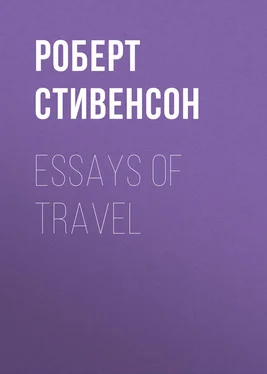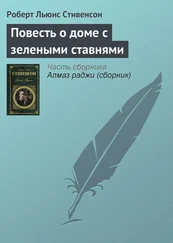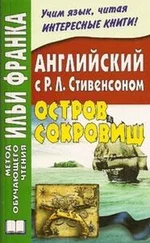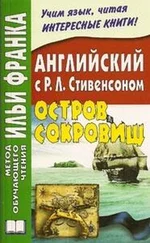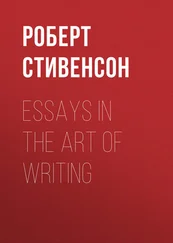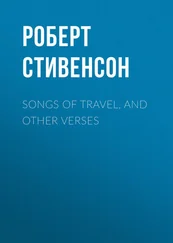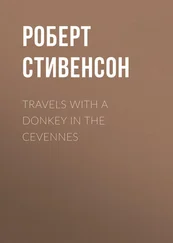Роберт Стивенсон - Essays of Travel
Здесь есть возможность читать онлайн «Роберт Стивенсон - Essays of Travel» — ознакомительный отрывок электронной книги совершенно бесплатно, а после прочтения отрывка купить полную версию. В некоторых случаях можно слушать аудио, скачать через торрент в формате fb2 и присутствует краткое содержание. Жанр: literature_19, foreign_antique, foreign_prose, Путешествия и география, на английском языке. Описание произведения, (предисловие) а так же отзывы посетителей доступны на портале библиотеки ЛибКат.
- Название:Essays of Travel
- Автор:
- Жанр:
- Год:неизвестен
- ISBN:нет данных
- Рейтинг книги:3 / 5. Голосов: 1
-
Избранное:Добавить в избранное
- Отзывы:
-
Ваша оценка:
- 60
- 1
- 2
- 3
- 4
- 5
Essays of Travel: краткое содержание, описание и аннотация
Предлагаем к чтению аннотацию, описание, краткое содержание или предисловие (зависит от того, что написал сам автор книги «Essays of Travel»). Если вы не нашли необходимую информацию о книге — напишите в комментариях, мы постараемся отыскать её.
Essays of Travel — читать онлайн ознакомительный отрывок
Ниже представлен текст книги, разбитый по страницам. Система сохранения места последней прочитанной страницы, позволяет с удобством читать онлайн бесплатно книгу «Essays of Travel», без необходимости каждый раз заново искать на чём Вы остановились. Поставьте закладку, и сможете в любой момент перейти на страницу, на которой закончили чтение.
Интервал:
Закладка:
This Tuesday morning we were all delighted with the change of weather, and in the highest possible spirits. We got in a cluster like bees, sitting between each other’s feet under lee of the deck-houses. Stories and laughter went around. The children climbed about the shrouds. White faces appeared for the first time, and began to take on colour from the wind. I was kept hard at work making cigarettes for one amateur after another, and my less than moderate skill was heartily admired. Lastly, down sat the fiddler in our midst and began to discourse his reels, and jigs, and ballads, with now and then a voice or two to take up the air and throw in the interest of human speech.
Through this merry and good-hearted scene there came three cabin passengers, a gentleman and two young ladies, picking their way with little gracious titters of indulgence, and a Lady-Bountiful air about nothing, which galled me to the quick. I have little of the radical in social questions, and have always nourished an idea that one person was as good as another. But I began to be troubled by this episode. It was astonishing what insults these people managed to convey by their presence. They seemed to throw their clothes in our faces. Their eyes searched us all over for tatters and incongruities. A laugh was ready at their lips; but they were too well-mannered to indulge it in our hearing. Wait a bit, till they were all back in the saloon, and then hear how wittily they would depict the manners of the steerage. We were in truth very innocently, cheerfully, and sensibly engaged, and there was no shadow of excuse for the swaying elegant superiority with which these damsels passed among us, or for the stiff and waggish glances of their squire. Not a word was said; only when they were gone Mackay sullenly damned their impudence under his breath; but we were all conscious of an icy influence and a dead break in the course of our enjoyment.
STEERAGE TYPES
We had a fellow on board, an Irish-American, for all the world like a beggar in a print by Callot; one-eyed, with great, splay crow’s-feet round the sockets; a knotty squab nose coming down over his moustache; a miraculous hat; a shirt that had been white, ay, ages long ago; an alpaca coat in its last sleeves; and, without hyperbole, no buttons to his trousers. Even in these rags and tatters, the man twinkled all over with impudence like a piece of sham jewellery; and I have heard him offer a situation to one of his fellow-passengers with the air of a lord. Nothing could overlie such a fellow; a kind of base success was written on his brow. He was then in his ill days; but I can imagine him in Congress with his mouth full of bombast and sawder. As we moved in the same circle, I was brought necessarily into his society. I do not think I ever heard him say anything that was true, kind, or interesting; but there was entertainment in the man’s demeanour. You might call him a half-educated Irish Tigg.
Our Russian made a remarkable contrast to this impossible fellow. Rumours and legends were current in the steerages about his antecedents. Some said he was a Nihilist escaping; others set him down for a harmless spendthrift, who had squandered fifty thousand roubles, and whose father had now despatched him to America by way of penance. Either tale might flourish in security; there was no contradiction to be feared, for the hero spoke not one word of English. I got on with him lumberingly enough in broken German, and learned from his own lips that he had been an apothecary. He carried the photograph of his betrothed in a pocket-book, and remarked that it did not do her justice. The cut of his head stood out from among the passengers with an air of startling strangeness. The first natural instinct was to take him for a desperado; but although the features, to our Western eyes, had a barbaric and unhomely cast, the eye both reassured and touched. It was large and very dark and soft, with an expression of dumb endurance, as if it had often looked on desperate circumstances and never looked on them without resolution.
He cried out when I used the word. ‘No, no,’ he said, ‘not resolution.’
‘The resolution to endure,’ I explained.
And then he shrugged his shoulders, and said, ‘ Ach , ja ,’ with gusto, like a man who has been flattered in his favourite pretensions. Indeed, he was always hinting at some secret sorrow; and his life, he said, had been one of unusual trouble and anxiety; so the legends of the steerage may have represented at least some shadow of the truth. Once, and once only, he sang a song at our concerts; standing forth without embarrassment, his great stature somewhat humped, his long arms frequently extended, his Kalmuck head thrown backward. It was a suitable piece of music, as deep as a cow’s bellow and wild like the White Sea. He was struck and charmed by the freedom and sociality of our manners. At home, he said, no one on a journey would speak to him, but those with whom he would not care to speak; thus unconsciously involving himself in the condemnation of his countrymen. But Russia was soon to be changed; the ice of the Neva was softening under the sun of civilisation; the new ideas, ‘ wie eine feine Violine ,’ were audible among the big empty drum notes of Imperial diplomacy; and he looked to see a great revival, though with a somewhat indistinct and childish hope.
We had a father and son who made a pair of Jacks-of-all-trades. It was the son who sang the ‘Death of Nelson’ under such contrarious circumstances. He was by trade a shearer of ship plates; but he could touch the organ, and led two choirs, and played the flute and piccolo in a professional string band. His repertory of songs was, besides, inexhaustible, and ranged impartially from the very best to the very worst within his reach. Nor did he seem to make the least distinction between these extremes, but would cheerily follow up ‘Tom Bowling’ with ‘Around her splendid form.’
The father, an old, cheery, small piece of man-hood, could do everything connected with tinwork from one end of the process to the other, use almost every carpenter’s tool, and make picture frames to boot. ‘I sat down with silver plate every Sunday,’ said he, ‘and pictures on the wall. I have made enough money to be rolling in my carriage. But, sir,’ looking at me unsteadily with his bright rheumy eyes, ‘I was troubled with a drunken wife.’ He took a hostile view of matrimony in consequence. ‘It’s an old saying,’ he remarked: ‘God made ’em, and the devil he mixed ’em.’
I think he was justified by his experience. It was a dreary story. He would bring home three pounds on Saturday, and on Monday all the clothes would be in pawn. Sick of the useless struggle, he gave up a paying contract, and contented himself with small and ill-paid jobs. ‘A bad job was as good as a good job for me,’ he said; ‘it all went the same way.’ Once the wife showed signs of amendment; she kept steady for weeks on end; it was again worth while to labour and to do one’s best. The husband found a good situation some distance from home, and, to make a little upon every hand, started the wife in a cook-shop; the children were here and there, busy as mice; savings began to grow together in the bank, and the golden age of hope had returned again to that unhappy family. But one week my old acquaintance, getting earlier through with his work, came home on the Friday instead of the Saturday, and there was his wife to receive him reeling drunk. He ‘took and gave her a pair o’ black eyes,’ for which I pardon him, nailed up the cook-shop door, gave up his situation, and resigned himself to a life of poverty, with the workhouse at the end. As the children came to their full age they fled the house, and established themselves in other countries; some did well, some not so well; but the father remained at home alone with his drunken wife, all his sound-hearted pluck and varied accomplishments depressed and negatived.
Читать дальшеИнтервал:
Закладка:
Похожие книги на «Essays of Travel»
Представляем Вашему вниманию похожие книги на «Essays of Travel» списком для выбора. Мы отобрали схожую по названию и смыслу литературу в надежде предоставить читателям больше вариантов отыскать новые, интересные, ещё непрочитанные произведения.
Обсуждение, отзывы о книге «Essays of Travel» и просто собственные мнения читателей. Оставьте ваши комментарии, напишите, что Вы думаете о произведении, его смысле или главных героях. Укажите что конкретно понравилось, а что нет, и почему Вы так считаете.
